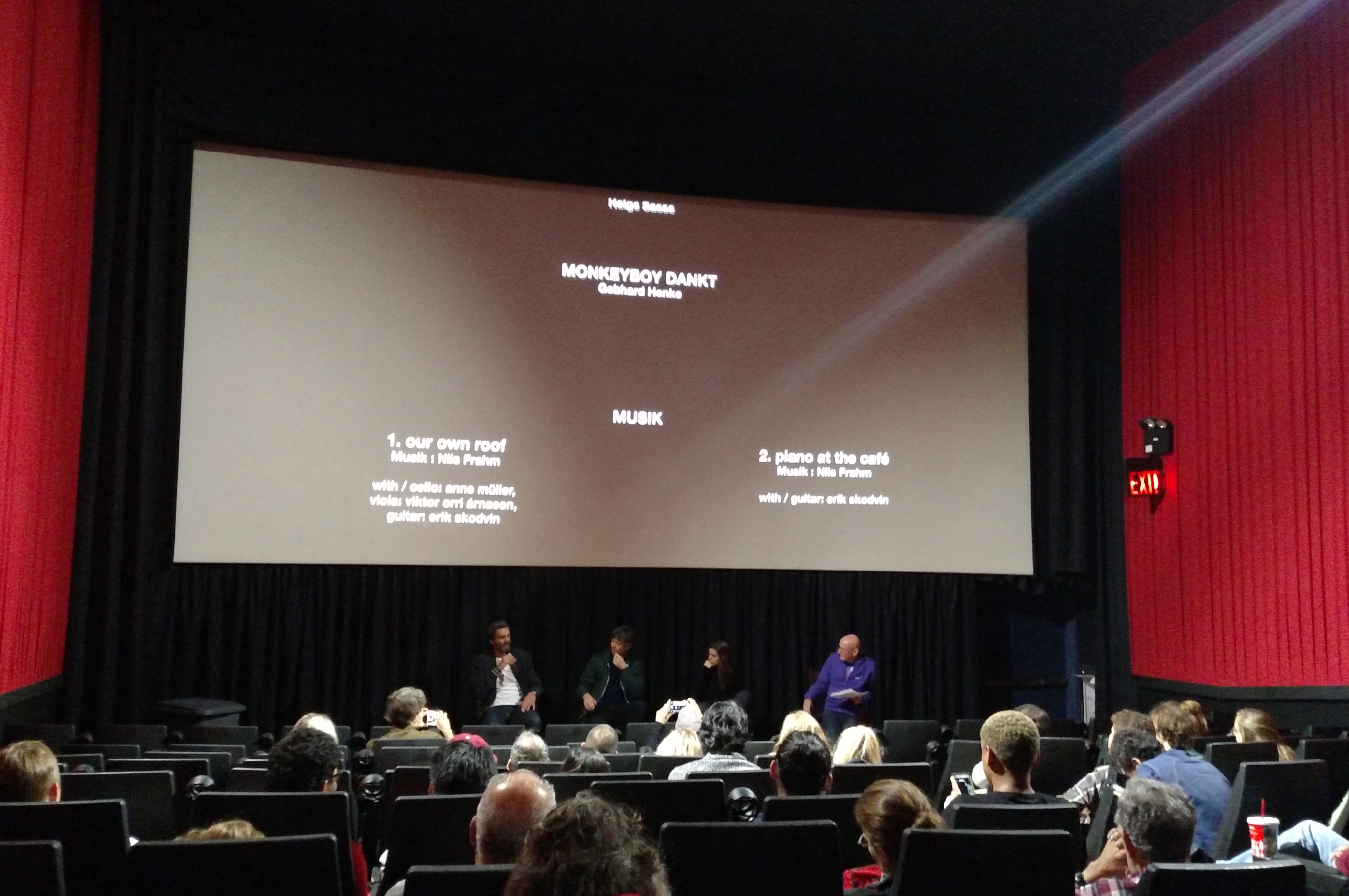It was to my surprise that at the commercial showing of VICTORIA I attended, Sebastian Schipper, the director, Sturla Brandth Grøvlen, the cameraman-cinematographer, and Laia Costa, who plays Victoria, were on hand for a post-film discussion. It was a triple threat panel, a trio of virtuosity. What we had seen was the third take of a movie about a night out that takes a wild turn, with improvised dialogue, multilingual but mostly in English, filmed in one mobile shot across 22 locations. Schipper owned that if it hadn’t worked he would have edited the takes as necessary, but it did, with a little digital scrubbing of Grøvlen out of mirrors and such, and a performance of such intensity from Costa as to make the stray touch of illogic or discontinuity in the film as easy to ignore as a flubbed line or a missed cue in a powerful stage production.
Victoria is a young madrileña working as a barista to fund a three-month stay in Berlin. The movie starts with her dancing in a strobe-lit club, calling it a night, and making her way on a bike towards home. She has to work first thing. Before getting far she runs into four male clubbers also on the way out. There’s something charming about them, and also a little threatening, but in a bad-boy way she can’t say no to. The one named Sonne, played by Frederick Lau, has a tender streak and there’s an instant trust between them; on some level they love each other already, and so the die is cast. The others, played by Franz Rogowski, Burak Yigit and Max Mauff, seem iffier for her to hang with, but Sonne’s presence, and her own alertness (a quality Costa has in abundance), make it seem okay. She tags along for more partying; when she tries to leave, she’s persuaded to stay just a little longer; and then longer again. When she does leave, we know it can’t be for good, because we’re only halfway through a feature film. At some point things get harrowing, as we know they will (and have from the start): we just don’t know how.
Some reviews of this film have named the genre, but I won’t. I saw it cold and had no idea, beyond the general, what was going to happen, and it might have veered into a different sort of film. That and the timing of the complication that determines the outcome were, in fact, part of how it builds suspense. Schipper plays adroitly with time, not just with the single shot, and Victoria’s needing to go to work, but also with time-outs from the dialogue (in particular a long close-up of Victoria with a toothbrush in her mouth), a running time of 140 minutes, and the slow intrusion of first light onto the German night. Grøvlen must have started his camera about two hours before sunrise, and not arbitrarily: a key event is pegged, as the plot complicates, for 7 in the morning. One wonders if the actors weren’t up all day before the shoot, for the people they play seem genuinely tired, with all vulnerability and the fault of judgment that entails.
In Costa this both reveals her strength as an actor and Victoria’s strength as a person. The scenario had the potential of stereotyping Victoria as a naïve young woman who gets into a male-driven situation she can’t handle and is gotten through it by a man who loves her, Sonne. In the film, quite the opposite happens (and here perhaps I risk a spoiler, for part of the suspense is that we fear for her due to the stereotype): it is Victoria who keeps her head, who at crucial junctures holds her emotions in check and does what must, in the direness of the moment, be done. It is the men who lose it, blubber in terror, break down emotionally. (I rather suspect, in analogous real-world situations, that this would more often than not be the case.) The attention that Victoria brings to the situation parallels the focus the actors must have needed to get through an unbroken take in which a single error could have sunk the project. Everyone pulls it off, brilliantly, but Costa in particular harnesses the conditions of the filming in service of the role she plays. Her intensity builds both empathy and suspense. It is a mesmerizing, utterly convincing achievement, a reflection in acting of VICTORIA as a whole.
Check listings for viewing options.
